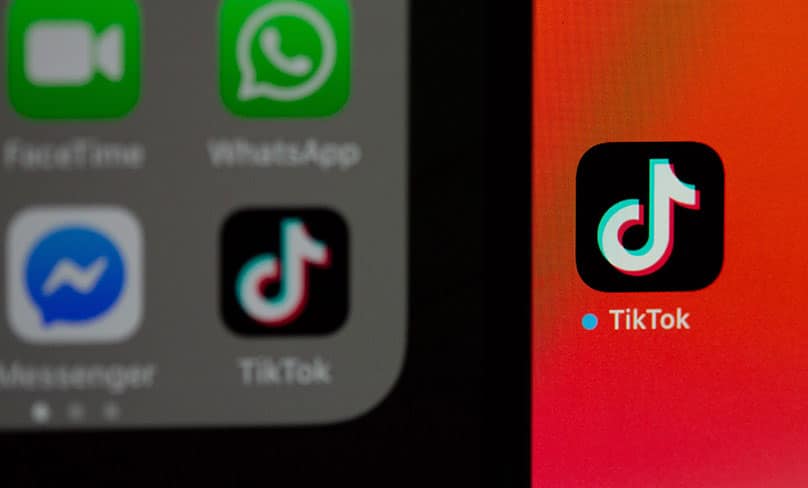
By Anna Harrison
The news is good, bad and ugly for Gen Z Catholics (born in the 1990s and early 2000s) in Australia, as spiritual openness leads young people towards the uncensored whirlwind of TikTok.
Young Catholics are left with the two-edged sword of an exciting increase in the exploration of faith amongst peers, mixed with the risks of social media dominating their faith formation.
Despite the growing dissociation of young people from the Church, Gen Z are open to spirituality, with 46 per cent seeking weekly guidance on TikTok, according to data from a recent McCrindle Research report (Changing Faith Landscape in Australia).
Confusion rises, with some users knowing how to utilise TikTok for quality Catholic content, while others are unaware of how to sift through the vast range of opinions about Faith.
The pressing question is how the beauty of Christ is being shone into the ugliness of contradiction as we navigate the new landscape of mission.

GOOD NEWS
In a social media-dependent world, Catholic videos are helping to ground the Church’s identity within apps and broader culture. Some Catholics currently use TikTok and Instagram as personal sources for faith formation, claiming helpful effects.
Prayer prompts, inspirational testimony, and Catholic answers for contemporary topics are some of the benefits accessible throughout one’s day.
Generation Z recognises TikTok as an appropriate place for discussing spirituality according to the McCrindle report.
TikTok’s potential reach for evangelisation is great, with the ability to spread the kerygma instantly.
TikTok is an opportunity for our modern age, allowing Catholics to meet peers where they currently stand with faith, and share truth in a familiar space.

Videos promoting Jesus’s love and compassion are popular among those searching for faith online.
Data shows an increase in identification with Jesus and a decline in alignment with the ‘Church’, reaffirming an openness to Jesus and ‘spirituality’ without comprehension of the role of the Church.
NOT SO GOOD NEWS
TikTok is an uncensored platform with the potential for addiction, confusion, disordered secularisation, and uncontrolled opinion.
The app exists for entertainment and engagement without justification – populating fake news.
For the average person seeking clarity about Catholicism, there is little-to-no distinction between personal grievance towards the Faith and genuine Catholic teaching.
Some of the mixed and negative Catholic representations on the app are even found under hashtags #catholic and #priests.
These range from complaints and mockery of a personal Catholic experience, to outright slander or heresy regarding Catholic teaching.
Frequently, Protestant creators discuss apologetics without reference to what the Catechism says as they promote anti-Catholic views to gain traction.
These trends are contrasted with the more positive content associated with the hashtag #jesus, reinforcing how people may be open to ‘spirituality’ and connect with Jesus, but do not resonate with anything ‘Catholic’.

AND DOWNRIGHT UGLY
Comical videos of Catholic ‘in jokes’ circulate on the platform and, although humorous and unifying for the formed Catholics, do not provide answers for the unchurched.
Other Catholic content is increasingly cringe-worthy and lacking in tasteful execution, reinforcing the perception of the Church as outdated. More complexities arise in bridging the gap between spiritual content online and participation in the life of Christ.
Shifting the culture beyond the parameters of TikTok’s 10-second content duration and towards an active Catholic life may become a point to consider in the longevity of this digital evangelisation.
In a world thriving on relativism, the ability to navigate truth, beauty, and goodness is already difficult. With conflicting content, TikTok offers few favours to assist the searching mind.
Without comprehension for discerning between hurt and teaching, truth and lies, misinterpretation and trusted wisdom, TikTok lacks a pastoral regulation in guidance about Catholicism.
The silver lining and hopeful fact among such complexities is that Gen Z is searching for truth, purpose and God.
How are we representing Christ and His Good News in the digital world, whilst encouraging people to move beyond dependency on social media for prayer?
Are we encouraged to become creators ourselves, avoid the app altogether, or spread awareness for the better videos that already exist?
The landscape of digital evangelisation comes with all sorts of new questions and concerns, as the uncensored space has the potential to cause personal damage.
Yet, the Church has an opportunity to capitalise on the current openness and offer searching souls a witness and invitation to the good, the true, and the beautiful Church of Christ.
Anna Harrison is a Youth Officer for Sydney Catholic Youth and holds a Liberal Arts degree
